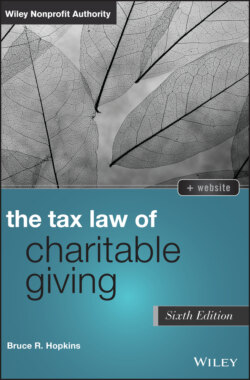Читать книгу The Tax Law of Charitable Giving - Bruce Hopkins R., Bruce R. Hopkins, David Middlebrook - Страница 75
(b) Definition of Unrelated Use
ОглавлениеThe term unrelated use means a use of an item of contributed property:
By a charitable organization that is not related to the purpose or function constituting the basis of the tax exemption for the charitable organization, or
By a governmental unit that is for a purpose other than an exclusively public purpose.61
If a charitable donee sells an item of tangible personal property donated to it, this deduction reduction rule is triggered, because sale of the property is not a related use of the property. Thus, donors of tangible personal property should exercise caution when contemplating a gift of the property, particularly when the donor knows the property is going to be promptly sold (such as a gift to support an auction).
If furnishings contributed to a charitable organization are used by it in its offices and buildings in the course of carrying out its functions, the use of the property is not an unrelated use. If a set or collection of items of tangible personal property is contributed to a charitable organization or governmental unit, the use of the set or collection is not an unrelated use if the donee sells or otherwise disposes of only an insubstantial portion of the set or collection. The use by a trust of tangible personal property contributed to it for the benefit of a charitable organization is an unrelated use if the use by the trust is one that would have been unrelated if used directly by the charitable organization.62
A donor who makes a charitable contribution of tangible personal property to or for the use of a charitable organization or governmental unit may treat the property as not being put to an unrelated use by the donee if:
The donor establishes that the property is not in fact put to an unrelated use by the donee,63 or
At the time of the contribution or at the time the contribution is treated as made, it is reasonable to anticipate that the property will not be put to an unrelated use by the donee.64
In the case of a contribution of tangible personal property to or for the use of a museum, if the object donated is of a general type normally retained by the museum or other museums for museum purposes, it is considered reasonable for the donor to anticipate, unless the donor has actual knowledge to the contrary, that the object will not be put to an unrelated use by the donee, whether or not the object is later sold or exchanged by the donee.65
